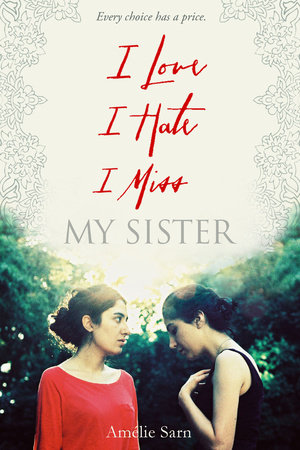
Genre: Contemporary
Rating: *****
Pages: 152
Original French Title: Un Flouard Pour Djelila (A Scarf for Djelila)
There's nobody Sohane loves or hates more than her little sister Djelila. While Sohane's praying in the mosque, Djelila's out partying. She's pretty, and she knows it. But so do the boys-both the ones Djelila flirts with at school and the religious extremist dropouts who roam the projects. Sohane keeps
wishing someone would teach Djelila a lesson. Until the dropout gang decides to do just that.
In the wake of the Parisian terrorist attacks, I've been looking for some way to understand the issues at play. My preferred method of education is reading and fiction packs power that naked facts don't. I'd heard about this book before, but forgot about it until I searched my library for Muslim YA reads and found one set in France.
I read this hoping for an understanding of life in France, but I didn't get it. I realized while reading this that the only France-set books I've read before were by American authors and written for an American audience. This one was not. The French setting is assumed, not built. I did, however, gain a greater understanding of Muslim life.
This is a beautiful little book. I'm Christian, not Muslim, but there were so many little details that were relevant to me as a person of faith, and I believe they'll be fascinating to many readers regardless of religious affiliation. When Sohane talks about going to the mosque, it's not an actual mosque, but a room in a local man's apartment that he's set aside for worship. This is the best they have because they don't live in a community with a high Muslim population.
The issue of wearing a hijab is explored in depth. Sohane gets kicked out of school for choosing to cover her hair while Djelila is attacked for not wearing one. Every non-Muslim character she talks to incorrectly refers to her hijab as a veil, even though she's standing in front of them and they can see her face is completely bare. The day Sohane decides to wear her hair in a scarf, she and Djelila go to visit her grandmother, who has several friends over. All of these elderly women give her reasons to stop wearing it. When she goes to a community meeting about Djelila's murder, the women organizing it, who don't know she's her sister, immediately kick her out.
"You don't belong here. Our group fights for the liberty of women, for the defense of their free will, and for the abolition of a chauvinist society. You disavow these values by accepting to wear the veil."
"I feel like shouting, not out of pain this time, but out of amusement at the irony. Of course, how did I forget? I can't participate in a debate that uses my sister as a symbol! I probably can't even be Djelila Chebli's siter, not the Djelila Chebli these women have chosen as the mascot for their own convictions!"
This book may be short, but it tackles complex issues of identity, religion, sisterhood, violence, sexism, and grief. Even though it has a violent murder scene, it brought me peace in wake of the terrorism that took the Western world by storm. It gave me the greater understanding of Islam I was looking for and it's a beautiful, tender portrayal of sisterhood and loss. Pick this up. It won't take you long to read and it's well worth your time.
No comments:
Post a Comment